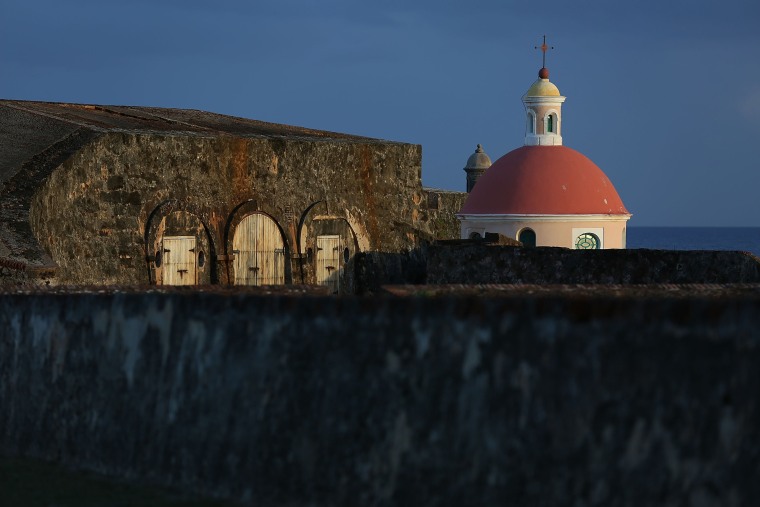As the debt crisis has unfolded in Puerto Rico, much of the discussion has been about bonds, creditors, fiscal policy and oversight boards.
But for some, the focus has been on another issue that has not made as many headlines, and that is child poverty. On the U.S. territory, 57 percent of children live in poverty.
“The numbers are totally staggering,” said Eric LeCompte, executive director of Jubilee USA, a network of U.S. and world organizations and faith groups that has advocated on the bill and advised religious leaders in the U.S. and Puerto Rico on issues related to the debt crisis.
The bill passed by the House Thursday to deal with Puerto Rico debt didn’t include much specifically on the topic, but LeCompte and others considered it a victory that it contained some recognition of the island's child poverty.
Related: House Approves Puerto Rico Debt Bill As July 1 Deadline Looms
An amendment authored by Rep. David Jolly, R-Fla., and Rep. Carlos Curbelo, R-Fla., creates room for more information about the situation to come to light.
The amendment requires the Congressional Task Force on Economic Growth in Puerto Rico, which is created by the debt bill, to report to Congress recommended changes to federal law and programs that would reduce the number of children living under these circumstances.
In an interview with NBC Latino before the bill’s passage, LeCompte said it was key to first put in place the tools needed to put Puerto Rico on a path to fiscal stability and to get started on its debt restructuring. The restructuring would help stave off further austerity measures that have been taken as the fiscal crisis has worsened, because that has created tougher conditions for children already living in poverty.
The island is $72 billion in debt and is so strapped for money it has closed more than 250 schools and hospitals and laid off workers, among other austerity measures.
LeCompte said that once that was negotiated in the bill forwarded to the House floor, it was important to get language in the bill that would create a way to set clear targets for child poverty reduction. The amendment was approved on a voice vote.
In May, Catholic Charities told the U.S. House in a letter that the demands for services and programs at Caritas de Puerto Rico had expanded five-fold.
“In 2015 alone, Caritas de Puerto Rico served over 78,000 people, all of whom were living under the poverty line and a third of whom were vulnerable children,” Sister Donna Markham, Catholic Charities president and CEO, wrote in the May 2 letter.
Pedro Pierluisi, the resident commissioner for Puerto Rico in the U.S. House, backed the amendment but said child poverty in Puerto Rico has been higher than the rest of the nation since statistics have been available.
“This demonstrates that the problem is structural in nature. It is rooted in the unequal treatment Puerto Rico receives under key federal anti-poverty programs, which is only permissible because Puerto Rico is a territory rather than a state,” Pierluisi said before the vote on the amendment on the House floor Tuesday.
Pierluisi backs statehood for Puerto Rico, but lost his bid to be the gubernatorial nominee for the Statehood Party in Puerto Rico last weekend. The victor, Ricardo “Ricky” Rosselló Nevarez, opposes the debt bill passed by the House.
Despite the concerns about children and families, the House rejected an amendment offered by Rep. Norma Torres, D-Calif., to strip a provision from the bill that allows employers to pay workers younger than 25, $4.25 an hour for four years as long as a fiscal oversight board that will restructure Puerto Rico's debt is in place. The amendment failed 225-196. Jolly voted for it, Curbelo against.
Torres and others argued young people could not survive in an already difficult economic environment on the lower wages and would likely leave Puerto Rico, as many already have done, sapping the island of its workforce and tax base.
But opponents argued the bill included many provisions for businesses to hire new workers and that Puerto Rico already allows for a youth opportunity wage for 90 days.

